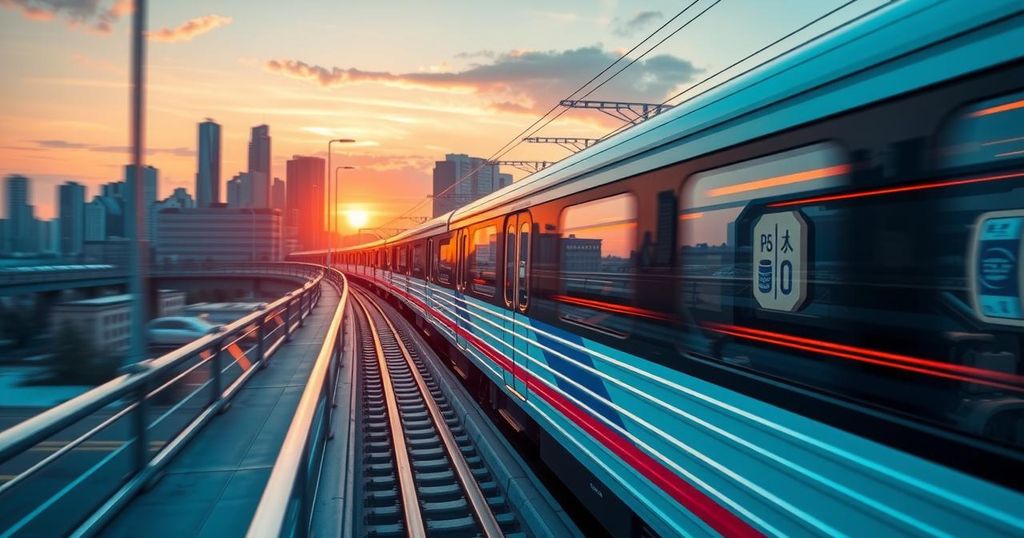Transportation Secretary Vince Dizon is focused on accelerating mass transit projects with an emphasis on public-private partnerships, aiming to improve commuting experiences throughout the Philippines. Despite progress, the current pace of development remains insufficient compared to regional standards, resulting in severe traffic congestion problems in Metro Manila which must be urgently addressed for economic growth and connectivity.
Transportation Secretary Vince Dizon aims to expedite large-scale transport projects, particularly high mass transit projects, emphasizing increased public-private partnerships (PPPs). This initiative is pivotal for improving transit infrastructures and responding to the growing demands for efficient public transport in the Philippines. The slow development of mass transit systems, especially in metro areas, necessitates action to enhance connectivity and reduce congestion for commuters.
Despite some progress, the pace of mass transit system development in the Philippines remains insufficient compared to regional counterparts like Indonesia and Thailand. Various challenges, including bureaucratic delays and funding issues, have hindered substantial improvements in transportation services. Historical rail systems have not evolved adequately, leaving the nation trailing behind in modernization efforts.
The introduction of efficient rail systems in countries such as Jakarta highlights the need for urgent development of the Philippines’ own rail infrastructure. As urban and suburban travelers increasingly rely on reliable transportation, successful transportation networks boost economic growth by facilitating trade and job creation.
Metro Manila faces severe traffic congestion affecting daily commuters. EDSA exemplifies this challenge, where significant losses are incurred daily due to gridlock. Acknowledging the economic and social costs of infrastructure delays, it is critical to prioritize the completion of mass transit projects.
High mass transit projects are essential to the government’s strategy for traffic reform, targeting improved connectivity between urban and rural areas, easing congestion, and enhancing public transportation services. The public sector’s role includes fostering an environment conducive to private investments in transport systems, ensuring mutual trust and effective project execution.
Expanding rail systems requires collaboration between public and private entities, with shared responsibilities leading to enhanced benefits for all stakeholders. While achieving a public transport standard comparable to countries like Japan and Singapore may take time, there exists significant potential for rapid advancement under the current administration.
Ultimately, the call for accelerated mass transit initiative execution is clear—action is needed now to relieve the commuting difficulties faced by millions of Filipinos. This commitment to public transportation development is vital for economic progress and service improvement.
In summary, the Philippines must prioritize the acceleration of high mass transit projects to resolve prevalent traffic issues and enhance public transportation. By fostering partnerships between public and private sectors, the government can spearhead improvements in infrastructure that will benefit economic growth and provide reliable connectivity for millions of commuters. The urgency for development cannot be overstated, emphasizing that immediate action is essential for long-term solutions.
Original Source: www.pna.gov.ph






